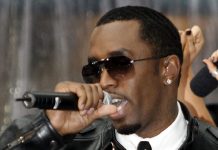No matter what side of the political aisle you happen to fall on, I will argue till the end that the Trump presidency was vicious. Some people will argue he was the best president since Abe Lincoln. I’d disagree, I think Trump is an evil, bloated, con artist who thinks he is a genius when in reality he is just as smart as a used car dealer. However, this con artist became president. Trump set a precedent for American politics; that’s about the only thing I believe he accomplished. This precedent is powerful, one that can move the masses, as seen on January 6 of this year.
I remember vividly where I was during the Trump incited insurrection. I was at my friend’s house, ironically talking about guns and end of the world scenarios. My friend received a text message from his wife telling him the Capitol Building was being stormed. When I saw the footage of crowds climbing the steps of the Capitol, I was waiting for bombs to explode where I was in New Hampshire. I imagined the emergency broadcast system announcing to everyone to stay indoors, wondering if we would be stormed ourselves. I was in full dystopia mode once those events unfolded. Thankfully, once the crowd was under control, rioters started to get arrested and lawsuits against Trump surfaced.
The precedent Trump built throughout his presidency, one of public condemnation of the integrity of justice systems, federal advisory committees, and the scientific community, erupted into a pathetic Capitol demonstration that left nothing in its wake except body bags, law suits, and proceedings of the exact thing the riot was meant to stop: the peaceful democratic process of the United States.
About a month after the Capitol attack, during my dystopian literature class at New England College, I was assigned to read a novel by Aldous Huxley titled Brave New World. The novel is extraordinary and in the afterward, titled Brave New World Revisited, there are striking similarities between the despots of Huxley’s time and the despots of the 21st century.
Brave New World was written in 1932; it’s a fictitious dystopian novel, often compared to George Orwell’s 1984. In Brave New World, Huxley incorporates concepts like eugenics, cloning, and designer babies within the plot. Huxley describes a society in which human beings are no longer born, but grown, very quantitatively. What is brought to life, is a world where certain people are bred with exceptional status, and also no status.
The population is categorized by scientific engineering. Alphas, and their superior Alpha Plus, are the apex of society. Alphas are created to be publicized, exemplified, and gratified. Conversely, Epsilons are subjected to unimaginable terror: fetal alcohol poisoning, electric shock therapy, 90+ twin cloning, mindless labor, and social rejection from higher classes. There are other classes in between such as Gammas, Deltas and Betas, each having slightly different conditioning.
Mothers are socially taboo and people live with the idea that their way of life is utopic. This all works until a handful of Alphas decide to go on vacation to “the savage reservation,” a place where the technologies to make Alphas and Epsilons do not exist. In this reservation, people do have mothers. Archaic concepts such as physical suffering, religion and sickness provide the Alphas with new perspectives.
In this strange world, the Alphas come across a man named John the savage. John’s father turns out to be a very prominent figure back in Alpha land. John the savage is brought back to civilized society, basically for the purpose of attraction and spectacle. However, John, unconditioned and separate from the will of the technologically dystopian society, develops contempt against the caste system. After the death of his mother, John wants nothing more than to escape from a population he can’t hope to change. Unfortunately for him, John is never able to escape. Even after traversing the outskirts of the city, and quartering in an abandoned lighthouse, the news crews and journalists still find him. With everyone wanting a piece of John’s uniqueness, John becomes hopeless and kills himself.
In a follow-up collection of essays, Brave New World Revisited, Huxley writes about parallels between reality and dystopia, touching on many important humanitarian and societal challenges.
In his first chapter, “Overpopulation,” the title alone feels all too familiar. The opening line of his overpopulation chapter is, “In 1931, when Brave New World was being written, I was convinced that there was still plenty of time.” He goes on to write about the prophecies of his dystopian novel coming to life sooner than he thought, less than a quarter of a century after the book’s first publication. And now, almost a century after the original Brave New World was written, the challenge of overpopulation still echoes, especially in a climate crisis world of environmental refugees. Huxley voices his concern that with more mouths to feed and less food to go around, essentially, how can we feed ourselves?
Later within the collections of essays, Huxley connects the fictitious dystopia of Brave New World to the totalitarian dictatorships of the past. He unearths the physiological techniques Hitler used to control and influence crowds by utilizing the technological advancements of the 1930s-1940s. I found myself adding a particularly enraged human everyone from the 21st century knows to this analysis of Hitler’s strategic rise to political power. I am talking, of course, about the Trump presidency and his campaign’s utilization of technology and crowds. I am sure that many would feel it unfair, and wrong, to compare Trump with Hitler, but there are similarities in regard to persuasion that are worth noting.
To start, when Trump was president, the man made his thoughts about his job very clear time and time again. He would ensure the millions watching him speak that he was the greatest. He made clear who the enemy was: those who stood in his way. Any regulatory body, whether that be a court, agency, or person, that attempted to look beyond the surface of his claims, was judged, accused, and dictated fake by Trump himself.
Immigrants were especially fun for Trump to berate. He would say in front of millions things like “they’re bringing drugs, they’re bringing crime, they’re rapists.” Trump’s rhetoric does not appeal to a logical part of human consciousness, but rather to what Huxley calls Hitler’s mobilization of the masses. Hitler, like Trump, enraged his supporters during rallies. Both also made use of hand gestures, tonal fluctuations, baseless hate-filled claims over a loudspeaker, and used the will of a crowd to advance their political agenda.
For Hitler, the agenda was the creation of the Aryan race, the ethnic cleansing of minorities, and world domination. For Trump, his campaign revolved around immigration: building a wall, getting immigrants out of the country, and stopping the inflow of asylum seekers to the US. Trump also made it clear that his hatred of Obama’s policies and presidency was only to be agreed with. If someone should question Trump on immigration or the “horrible” state of the American economy once Obama left office, they’d be a big target for what Trump called “fake news,” or just flat out wrong. This judge, jury, executioner mindset, only aided Trump’s rise to power. The point is that crowds of people can be easily moved when faced with impassioned vindictiveness, even baseless vindictiveness.
If you read my previous article titled “Social Media is a Drug,” there is another type of dystopian reality emerging from technology itself. Social media, and the technology that governs it, is a concentrated, vastly rich sector of the American economy that, among other things, influences the people of the nation and the nation’s politics. This is similar to what Huxley writes: “This Power Elite directly employs several millions of the country’s working force in its factories, offices and stores, controls many millions more by lending them the money to buy its products, and, through its ownership of the media of mass communication, influences the thoughts, the feelings, and the actions of virtually everybody.” This quotation from 64 years ago directly compares with the unfettered capitalism of the United States today.
The creators of apps and popular websites admit the damage they do to independent thought and action. To connect this with dystopian realities, a criteria for dystopia is a society’s susceptibility to manipulation. Huxley points out “we are forced to act on insufficient evidence and by a light considerably less steady than that of logic.” A daily routine of doom scrolling, unrealistic body expectations, and instant gratification from popular sites, pages and profiles, is enough to drive any well-intentioned individual to continue to pour their attention into this online farce.
What is happening in today’s society is similar to what Huxley envisioned in Brave New World. Certainly, what Huxley describes in Brave New World Revisited can be compared to today and analyzed indefinitely. While we do not clone humans by the dozens, nor condition them to unquestionably work without choice or thought, I would attest to the current mechanics of a dystopian reality: spectacle used to rise to power and free actions/thoughts open to manipulation, which are mercilessly dissolving the integrity of democratic systems.





















